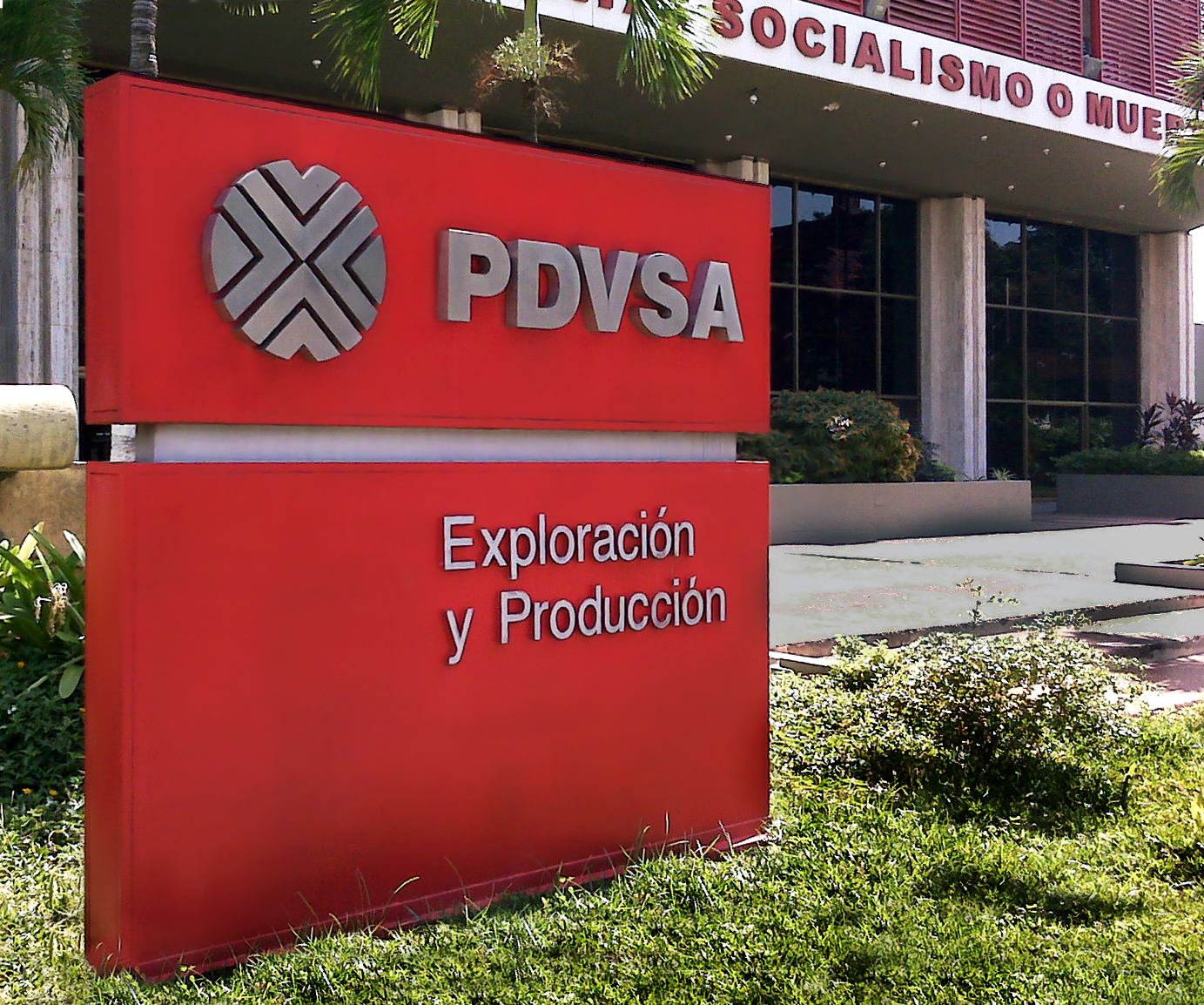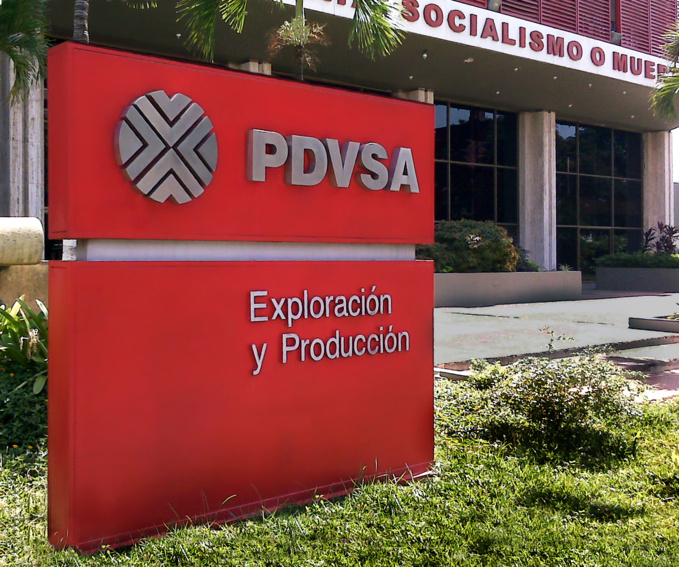Sanctions do not prohibit buying oil from PDVSA, and its US refinery Citgo Petroleum can continue to work. However, all payments must be transferred to a special escrow account where they will be blocked. As stated by US Treasury Secretary Steven Mnuchin, the sanctions will be lifted when Maduro agrees to hand over power to the chairman of the National Assembly and opposition leader Juan Guido. The United States and many other countries, including the overwhelming majority of Latin American countries, recognized him as interim president of Venezuela.
At least some of the money will be available to the Venezuelan opposition. Later, the State Department announced that the United States had provided Guido the right to dispose of the assets of the government and the central bank of Venezuela held in the accounts of American banks, including the Federal Reserve Bank of New York. "We urge other governments <...> to take similar steps to protect the property of Venezuela from further theft by the corrupt Maduro regime," the State Department said in a statement.
Guido told The Wall Street Journal that the actions of the United States would allow his interim government to immediately get access to $ 500 million. He is going to use this money to organize new elections, to buy medicines and food. He also intends to change composition of the board of directors of Citgo and PDVSA, which should allow his government to receive money from escrow accounts in the United States.
Maduro threatened to appeal to international courts and take retaliatory measures. And the current leadership of PDVSA ordered to ship oil to tankers for shipment to the US only after the prepayment, Reuters reports citing three people familiar with the situation. However, such an advance payment would mean a violation of US sanctions by the company's clients.
For Chevron and other large PDVSA clients still working in Venezuela, “only one thing is clear,” says Gustavo Coronel, who led the state-owned company in the early 1990s and now lives in the USA. “They can no longer pay Maduro’s government,” he told the WSJ.
Venezuela receives petrodollars mainly from the United States, where it sells about 500,000 barrels of oil per day; shipments to China and Russia go to pay for loans. PDVSA may try to redirect US destined oil to other countries. But it will take time. Also, PDVSA will have to make a discount, because American refineries buy its oil with high sulfur content; In addition, China, for example, working with oil sellers in a difficult situation, requires a discount, just like in the case with Iran. Finally, even large consumers like China or India are unlikely to immediately increase oil imports by 500,000 barrels per day, says Francisco Rodriguez, head of Torino Capital in Caracas (quoted by WSJ): “It will be difficult to sell oil elsewhere, invoice it and conduct transactions so that they do not pass through the financial system of the United States or Europe."
The US sanctions will further complicate the situation for PDVSA: even before their introduction, dissatisfied state-owned lenders began to hunt for ships carrying its oil in the Caribbean, reports Bloomberg. They were inspired by the success of the American ConocoPhillips: in 2018 the court of Curaçao allowed ConocoPhillips to confiscate the local assets of PDVSA as compensation in the amount of $ 2 billion for the forced nationalization of its assets in Venezuela in 2007.
PDVSA uses infrastructure in Curaçao and other Caribbean islands to store and mix its oil with lighter grades for subsequent export to the US and Asia. But their courts usually side with the lenders, since local laws are based on the Dutch, notes Bloomberg. Therefore, at least four more companies that PDVSA owes have followed the lead of ConocoPhillips.
To reduce the risk of seizure of ships, PDVSA is now trying to avoid the Caribbean islands. In 2017 its tankers shipped oil to Curaçao 132 times, but there were just 17 times in 2018, according to Bloomberg. However, the company cannot completely abandon the use of local infrastructure. Creditors track when the vessels approaching the Caribbean islands, one of them told the agency on condition of anonymity.
According to lawyers, these companies are at risk of spoiling relations with PDVSA, but many of them cannot wait for the change of power in the country. “Many PDVSA lenders have lost patience and are trying to protect their interests,” says a lawyer from Curaçao (quoted by Bloomberg). “There is no better or more logical way [than to confiscate the ships].”
US sanctions could accelerate collapse of the PDVSA, which is already falling apart under the rule of Major General Manuel Quevedo of the National Guard, whom Maduro appointed Minister of Oil and President of PDVSA in October 2017. “This is an absolute shock. This company is already ditched,” a PDVSA top manager told Reuters.
According to OPEC from secondary sources (market participants, buyers and carriers of oil, etc.), daily production in Venezuela in December 2018 was 1.15 million barrels, while in 2017 it was 1.91 million.
At least some of the money will be available to the Venezuelan opposition. Later, the State Department announced that the United States had provided Guido the right to dispose of the assets of the government and the central bank of Venezuela held in the accounts of American banks, including the Federal Reserve Bank of New York. "We urge other governments <...> to take similar steps to protect the property of Venezuela from further theft by the corrupt Maduro regime," the State Department said in a statement.
Guido told The Wall Street Journal that the actions of the United States would allow his interim government to immediately get access to $ 500 million. He is going to use this money to organize new elections, to buy medicines and food. He also intends to change composition of the board of directors of Citgo and PDVSA, which should allow his government to receive money from escrow accounts in the United States.
Maduro threatened to appeal to international courts and take retaliatory measures. And the current leadership of PDVSA ordered to ship oil to tankers for shipment to the US only after the prepayment, Reuters reports citing three people familiar with the situation. However, such an advance payment would mean a violation of US sanctions by the company's clients.
For Chevron and other large PDVSA clients still working in Venezuela, “only one thing is clear,” says Gustavo Coronel, who led the state-owned company in the early 1990s and now lives in the USA. “They can no longer pay Maduro’s government,” he told the WSJ.
Venezuela receives petrodollars mainly from the United States, where it sells about 500,000 barrels of oil per day; shipments to China and Russia go to pay for loans. PDVSA may try to redirect US destined oil to other countries. But it will take time. Also, PDVSA will have to make a discount, because American refineries buy its oil with high sulfur content; In addition, China, for example, working with oil sellers in a difficult situation, requires a discount, just like in the case with Iran. Finally, even large consumers like China or India are unlikely to immediately increase oil imports by 500,000 barrels per day, says Francisco Rodriguez, head of Torino Capital in Caracas (quoted by WSJ): “It will be difficult to sell oil elsewhere, invoice it and conduct transactions so that they do not pass through the financial system of the United States or Europe."
The US sanctions will further complicate the situation for PDVSA: even before their introduction, dissatisfied state-owned lenders began to hunt for ships carrying its oil in the Caribbean, reports Bloomberg. They were inspired by the success of the American ConocoPhillips: in 2018 the court of Curaçao allowed ConocoPhillips to confiscate the local assets of PDVSA as compensation in the amount of $ 2 billion for the forced nationalization of its assets in Venezuela in 2007.
PDVSA uses infrastructure in Curaçao and other Caribbean islands to store and mix its oil with lighter grades for subsequent export to the US and Asia. But their courts usually side with the lenders, since local laws are based on the Dutch, notes Bloomberg. Therefore, at least four more companies that PDVSA owes have followed the lead of ConocoPhillips.
To reduce the risk of seizure of ships, PDVSA is now trying to avoid the Caribbean islands. In 2017 its tankers shipped oil to Curaçao 132 times, but there were just 17 times in 2018, according to Bloomberg. However, the company cannot completely abandon the use of local infrastructure. Creditors track when the vessels approaching the Caribbean islands, one of them told the agency on condition of anonymity.
According to lawyers, these companies are at risk of spoiling relations with PDVSA, but many of them cannot wait for the change of power in the country. “Many PDVSA lenders have lost patience and are trying to protect their interests,” says a lawyer from Curaçao (quoted by Bloomberg). “There is no better or more logical way [than to confiscate the ships].”
US sanctions could accelerate collapse of the PDVSA, which is already falling apart under the rule of Major General Manuel Quevedo of the National Guard, whom Maduro appointed Minister of Oil and President of PDVSA in October 2017. “This is an absolute shock. This company is already ditched,” a PDVSA top manager told Reuters.
According to OPEC from secondary sources (market participants, buyers and carriers of oil, etc.), daily production in Venezuela in December 2018 was 1.15 million barrels, while in 2017 it was 1.91 million.



















